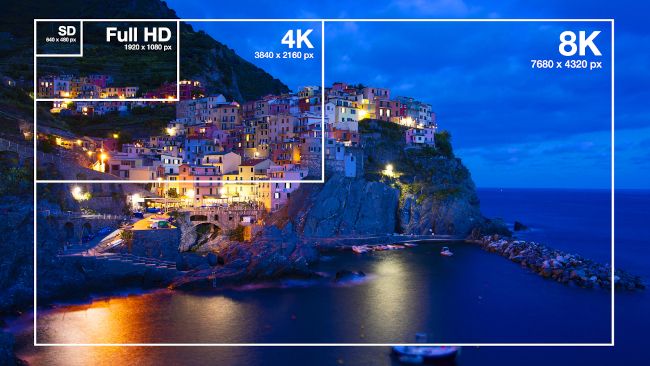Quick Links
With the rise of digital game platforms and streaming services, is there really a future for optical discs? Blu-ray discs are hanging on, but for how much longer? Will Blu-ray discs be the last optical format ever, or will another replace it?
Blu-ray Players Are Going Away
In 2019, Samsung discontinued production of its Blu-ray players, and it's becoming harder to find a new player as time passes. Few prebuilt desktop PCs or laptops come with optical drives anymore, either. So if you have a collection of Blu-ray discs to play, you don't have many options for playing them.
That is unless you buy a current or previous-generation Xbox or PlayStation console. Since Blu-ray discs are the standard format for console video games, discs will remain in production for at least as long as these consoles are relevant.
Blu-ray Is Not Dead (Yet)
Despite standalone players being in decline, Blu-ray movies continue to be produced. They remain the only way for movie buffs to collect a copy of a film for home viewing that won't disappear overnight. While you can probably find most mainstream films on one of the prevailing streaming services, more obscure films are only available through digital purchase or on disc. Digital purchases aren't suitable for keeping a collection since their servers can be taken offline at some point. Sony, for example, announced in July 2022 that several movies that people purchased through the PlayStation Store would disappear due to licensing agreements.
It's also easy to forget that Blu-ray technology got an update as recent as 2015 with the introduction of UHD 4K Blu-ray discs. At the time of writing, the largest capacity Blu-ray disc is 128GB, although it's the 100GB version that games and movies ship on.
Blu-ray discs offer some of the cheapest storage per GB, about equal to the most affordable hard drive storage, but without the mechanical complexity and failure rates that go with it.
While internet speeds are climbing fast, a 100GB Blu-ray disc is about as fast as gigabit fiber, much faster than most home internet connections worldwide. Typical 4K streams use up to 40Mbps at the high end, yet even then offer much more compressed video at a lower bitrate than Blu-ray.
Far from being obsolete, Blu-ray discs still have an important part to play in storage, as long as solid-state drive (SSD) technology remains small and expensive, and internet connection speeds are so much slower than installing something from a disc.
There Are Bigger Discs Out There
Believe it or not, there was actually a Blu-ray successor in development. Known as the HVD or Holographic Versatile Disc, it would offer capacities of up to 6TB. This was under development as far back as 2010, but market conditions and the eventual bankruptcy of the company responsible for developing HVD technology put an end to the project.
Although this commercial successor never became an actual product, it doesn't mean no one is working on more advanced optical discs. Optical discs, if they're made from the right stuff, can theoretically last more than a century. This makes them desirable for archival purposes. In 2018, scientists announced they had developed a 10TB optical disc with a theoretical lifespan of 600 years.
In 2020, Sony (who developed Blu-ray) announced their third-generation optical storage system. These server-based optical devices use disc cartridges that store 5.5TB each, offering read speeds up to 3Gbps and write speeds of 1.5Gbps. Clearly, there's still quite some headroom to make something much bigger and faster than Blu-ray discs in the commercial market.
8K Movies and Bigger Games Are Coming
While Blu-ray may "only" be as fast as having gigabit fiber, the media size isn't standing still either. At some point in the future, 8K movie media will become available and this represents four times the amount of resolution compared to 4K, which is in turn four times that of 1080p footage. Streaming this content will be a tall order and downloading it to a local drive would be onerous.
Video games are also growing in size, and while it is possible to simply ship a game on multiple discs, a new optical media standard with much faster read speeds could make it possible to only partially install a game to the SSD, and then rapidly load upcoming sections of the game in the background while you play.
Will There Be Other Optical Discs?
While we think there's still a future role for optical disks in the consumer world, whether we'll actually see one depends on several factors.
First, someone will have to develop a disc that offers such clear benefits over the alternatives that it will attract investors. Secondly, confidence in the all-digital content future must come down from the current hype's peak. Losing access to content and service outages may make people think twice about investing fully in a world without offline discs. Third, solid-state memory devices would have to remain too expensive in comparison.
We think the last factor is perhaps the least likely to be true. Solid state memory benefits from the same exponential performance and density increases as other semiconductor technologies. SSDs do suffer from "bit rot," where the electrical charges that represent data dissipate over time if the disc isn't powered up, but as long as they are powered up every few years, they should last as long as the typical user would need them to. If solid-state storage becomes cheap enough, we may see movies and games ship on a read-only cartridge format or simply future flash memory connected via a USB port.


